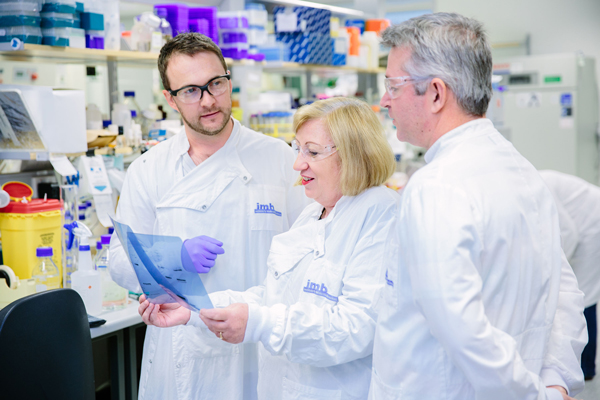University of Queensland researchers have discovered a molecular trigger for inflammation that could lead to new treatments for rheumatoid arthritis, inflammatory bowel disease and neurodegenerative diseases.

UQ’s Institute for Molecular Bioscience (IMB) researcher Professor Jennifer Stow said targeting this trigger - a protein called SCIMP, could reduce or ‘switch off’ inflammation.
“Inflammation is the body’s way of protecting us against infection, but uncontrolled inflammation drives disease and causes pain and loss of function for patients,” Professor Stow said.
“This latest discovery could lead to better treatments, offering hope for patients who do not respond to current drugs.
“SCIMP is the first protein of its kind to be discovered that binds directly to the pathogen receptors on immune cells that trigger inflammatory responses.
“This makes SCIMP a valuable new drug target with the potential to reduce or ‘switch off’ selected inflammatory responses.
“SCIMP-based drugs might also have fewer side effects and would potentially be an option for more than half of the patients with inflammatory diseases who find little or no relief from current treatments,” Professor Stow said.
This discovery, published in Nature Communications, is the result of a collaboration between UQ's Professor Jennifer Stow and Professor Matt Sweet.
It is the latest finding to emerge from IMB’s Centre for Inflammation and Disease Research, where researchers are working to find better ways to control inflammation.



